Rita’s Top Ten of 2012
10. Argo
I know it’s not a bracing treatise on the human condition or anything, but man, is it an effective, gripping thriller. When it comes right down to it, the amazing thing about movies (or any other kind of storytelling) is that when they’re good, they make you sincerely care about something that you know isn’t really happening right in front of you. Argo is all about artifice, tricks, and lies. It’s a celebration of them, even. It’s manipulative in the best sense of the word, and sometimes that’s the most impressive thing that a movie can be.
9. The Sessions
One of the most mature, heartfelt, and genuinely joyful depictions of sex I’ve seen on film in a while. The chemistry between John Hawkes, as a polio-stricken writer who sets out to have his first sexual relationship in spite of his disability, and Helen Hunt, as the “sex surrogate” who’s committed to helping him out, is the glue that holds the film together, as well as what keeps it from becoming too saccharine or Hallmark-y. The way the script deploys humor, particularly during their more explicit scenes together, is remarkably assured. It feels genuine and warm-hearted, preventing things from getting too serious, but without ever crossing the line into adolescent raunch, or worse, mocking the idea of a disabled person having a sex life. This is a sweet, simple story that knows exactly what belongs in it and what doesn’t. Some might call it sappy, but I call it refreshingly sincere and life-affirming.
8. Lincoln
Lincoln is packed with great performances – from Daniel Day-Lewis, Sally Field, Tommy Lee Jones, pretty much every living white male actor you’ve ever enjoyed in anything, and a few others who don’t fit into that last category (Julie White! David Oyelowo! S. Epatha Merkerson!). But the thing I love most about it is Tony Kushner’s screenplay. Kushner has a well-documented talent for writing dialogue that’s broadly political and intensely personal at the same time, and Lincoln is a perfect showcase for that specific skill. It’s primarily a procedural, following precisely what steps had to be taken to pass the 13th Amendment. But it finds clever ways – like the stunning battle scene that opens the film, or younger son Tad’s preoccupation with photographs of slaves – to speak to the outside forces that shape the story. Macro and micro are intertwined and constantly informing each other. Also, the big, righteous, declamatory speeches are just a lot of fun. I’m not sure when I’ll have the opportunity to call someone I dislike an “unnatural noise,” but when it happens, I’ll be ready, and I will relish it.
7. Silver Linings Playbook
What does it say about romantic comedies that some of the hoariest clichés of the genre suddenly feel vital and moving and real when enacted by people who are sort of unhinged? The actual plot of Silver Linings Playbook is pretty clichéd – a guy hatches a plan to win back his ex, finds a girl to help him out with it, then winds up falling for the girl. What saves it are the unexpectedly heavy plot elements – grief, sex addiction, various and sundry mental disorders – and they way they’re woven organically into the fabric of the film’s world, rather than layered on top in a bid to make a cookie cutter romance feel more “important.” The film’s tone straddles the line between bitter and sweet, allowing the character’s problems to be funny and scary at the same time. It ends happily, and while I’m not sure if I believe that Pat and Tiffany’s romance will last, I don’t think the film necessarily expects us to. It’s a story about appreciating the good things in life when they appear to you. As Pat says near the beginning of the film, “It’s fucking hard enough as it is. Can’t somebody say, ‘Hey, let’s have a good ending to the story?’”
6. The Cabin in the Woods
If the horror genre had a series finale, where all of its past guest stars came back for one last hurrah, it would probably look a lot like The Cabin in the Woods. There have already been plenty of meta horror films, but Cabin takes its ideas the furthest, surprises us the most, and leads to an ending so gleefully batshit and over the top that I kind of wish I could bottle the feeling I had the first time I saw it and take a hit of it whenever I get bummed out. It mythologizes and satirizes horror tropes in one fell swoop, while taking frequent breaks to indulge in co-writer and producer Joss Whedon’s signature whip smart dialogue and irreverent humor.
5. Compliance
Good art should ask questions. Film, being the most visceral, you-are-there art form, is uniquely well-suited to asking one particular question: “What would you do?” Craig Zobel’s Compliance asks it in one of the most pointed and gut-wrenching ways I’ve ever seen. Inspired by true events, the film zooms in on the details of a mundane work day as it slowly but steadily descends into horror, and along the way asks the audience to examine its own relationship to authority and personal integrity. It’s perfectly calibrated from top to bottom, but the movie’s crown jewel is Ann Dowd’s performance as Sandra, the overworked, under-appreciated fast food manager who, at the behest of an anonymous caller who claims to be a cop investigating a theft in the restaurant, lets an awful thing happen to an employee under her watch. It would be easy to dismiss Sandra as spineless or ignorant – and let’s be honest, she’s a little of both – but Dowd’s performance invites a surprising amount of sympathy. When “Officer Daniels” tells her she’s doing a great job helping with the investigation, she thanks him with a sincerity that’s heartbreaking – it’s obvious those words of approval are all she really wants.
4. Looper
Inventive, suspenseful, moving, mind-bending, and just really, really fun. There are so many great things going in Looper: It’s a time travel movie, a gangster movie, and an action movie. It’s also a drama about the cyclical nature of violence, the anxiety of facing down your past, and the potential horrors of raising a child. It could have been a real mess, but the endlessly clever Rian Johnson figures out how to connect all the dots, close all the loops, and keep all the action grounded in an emotional truth that grips you from the beginning and doesn’t let you go until the end.
3. Bernie
My expectations for Bernie were not high. I don’t know if it was the overly light and silly trailer, or the poster that seemed to consciously aping the look of TV’s Dexter, but the whole thing just looked uninteresting to me. Luckily, the actual film is a whole lot stranger and better than its promotional materials made it look. It’s less about the actual crime Bernie commits (though that’s certainly interesting in and of itself) than it is about the phenomenon of small towns – the way insular communities rally to protect their own, sometimes in ways that challenge logic or conventional morality, and exactly what behaviors either or will or won’t earn you that kind of protection. People have called Jack Black’s performance “a revelation,” but he doesn’t reveal anything new so much as he reins in what we already knew he could do and then focuses it like a laser. Black has always played characters with boyish exuberance and an innate need to put on a show for others. Bernie is another one of these; it’s just that in this case, the audience he wants to win over is Texan church ladies.
2. The Queen of Versailles
Lauren Greenfield’s absurdly engrossing kaleidoscope of class issues refuses to judge its subjects – most of the time. An account of one family’s quest to build the largest single family home in America (modeled after the Palace of Versailles) and the reversal of fortune that forces them to put their plans on hold, it invites us to laugh at their folly, but only to a point. Yes, the level of luxury they feel they’ve earned is way over the top (plus their taste is unspeakably tacky). Yes, head of the family David made his millions by suckering middle-class people into buying time-shares they frequently can’t afford. And yes, David’s much-younger trophy wife Jackie is so out of touch that she assumes rental cars come with a driver. But when the recession hits their business hard and their decadent lives start falling apart, they both becomes more sympathetic than you’d expect. Jackie is smarter and more resourceful than she seems, and David winds up sadly undone by the same single-minded workaholism that made him so successful in the first place. But Greenfield’s greatest achievement is the dramatic use of images – a swimming pool grown over with algae, a collection of stuff that used to fill a mansion now crammed into a small house, and of course, the perfect metaphor of their half-built Versailles – to illustrate how quickly a life built on illusions can can fall into disrepair and decay.
1. Wreck-It Ralph
No other movie this year gave me as much joy as Wreck-It Ralph. A testament to the power of animation, it builds an elaborate fictional world and uses it to tell a disarmingly universal story about the search for meaning and one’s place in the world. The entire cast is stellar, but I was most impressed by Sarah Silverman’s deceptively complex performance as Vanellope. Bratty but wounded, scheming but sweet, she’s a delight to watch, and her relationship with Ralph is what gives the movie most of its emotional heft. While some (ahem, David) have interpreted the film’s message as “know your place,” I think it’s more nuanced than that. It acknowledges the practical reality that not everyone can have their dream job, while asserting that everyone deserves respect and gratitude for doing the job they have well. And while, technically, Ralph does end his journey in the same place he started, it’s never suggested that he shouldn’t have taken the journey in the first place. He’s better off for having had the adventure, even if the result wasn’t what he expected – and that’s as good a message for a kid’s movie as any.
Honorable mentions: Amour, The Invisible War, Life of Pi, The Master, The Perks of Being a Wallflower, Wanderlust, Zero Dark Thirty
Didn’t see: Cloud Atlas, The Deep Blue Sea, Flight, Moonrise Kingdom, Once Upon A Time in Anatolia, Rust and Bone, Skyfall

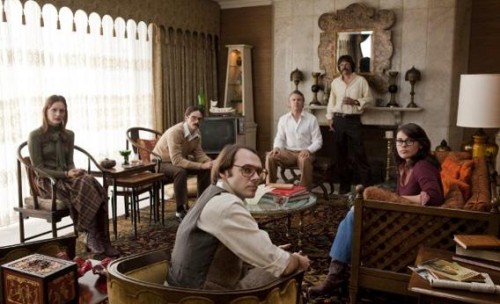

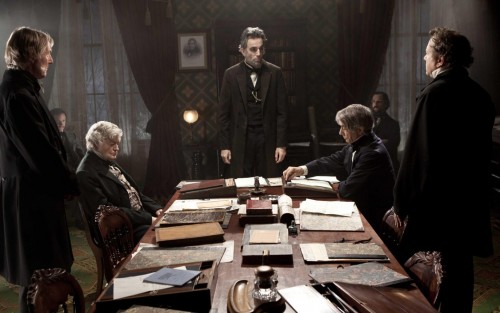
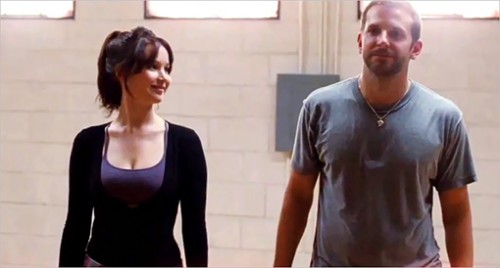
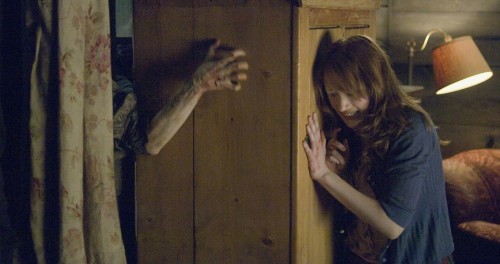
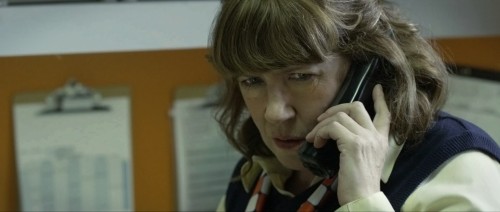
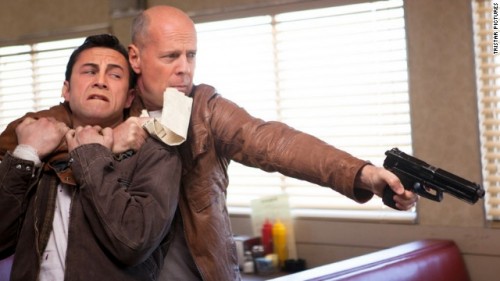
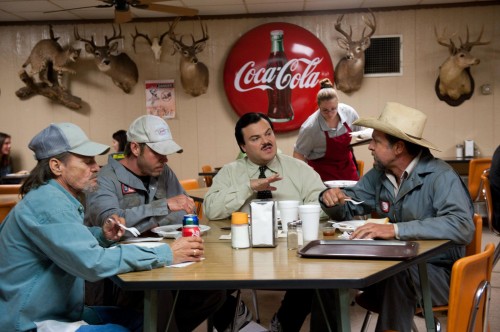
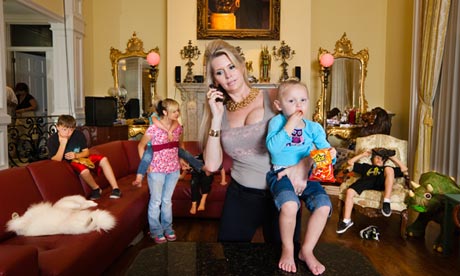
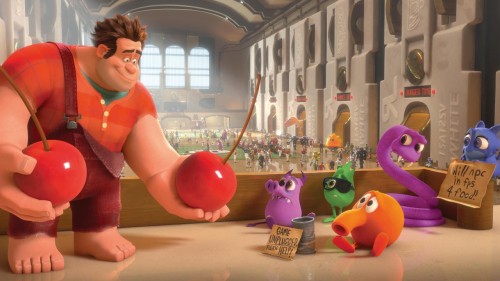



























What I found so irritating about The Sessions was that the film actually confirmed his emotional problem (that he falls in love with every woman he meets) by having three out of four of the female characters fall in love with him back, even the one whose professional training is designed to prevent that kind of emotional attachment. There was also a missed opportunity to develop more deeply the religious origins of his attitude towards sex. Also the film spends the least amount of time on the supposedly most meaningful relationship with his WIFE and mother of his child!
I totally bought that Cheryl and Amanda would fall in love with Mark – at least in the capacity that they do in the film, i.e. one that doesn’t involve having an actual, day-to-day, committed relationship with him. The fact that Amanda only says she loves him after not seeing him for years suggests to me that what she’s really in love with is an idealized memory of him. And even though Cheryl’s relationship with Mark is much more intimate, and they’re clearly very attracted to each other, they’re both acutely aware that it can’t work out in the long run. If they’d had a full-on affair and Cheryl had tried to leave her husband or something, I would have cried foul, but the way it played out felt really honest to me. So yes, the women he falls in love with tend to love him back, but they do so in ways that I don’t feel “confirm his emotional problem,” at least if I’m correctly understanding what you mean by that.
I actually agree that it would have been nice to learn more about the life he had with his wife. Fundamentally, the movie is about his experience with Cheryl, not about meeting his wife, but I would have liked to see a little more of her while still keeping the primary focus on the sex surrogacy thing.
I cannot agree more with Rita’s take on “Wreck-It Ralph.” Her observation that Ralph is only “technically” in the same place (as in the same physical–okay, electronic– location) at the beginning and end of the film is spot-on. I tried leaving comments on each of the two previous podcasts in which David mentioned his problems with “Ralph” but I was never satisfied with the result. Good thing, because I couldn’t have said it better than Rita did.